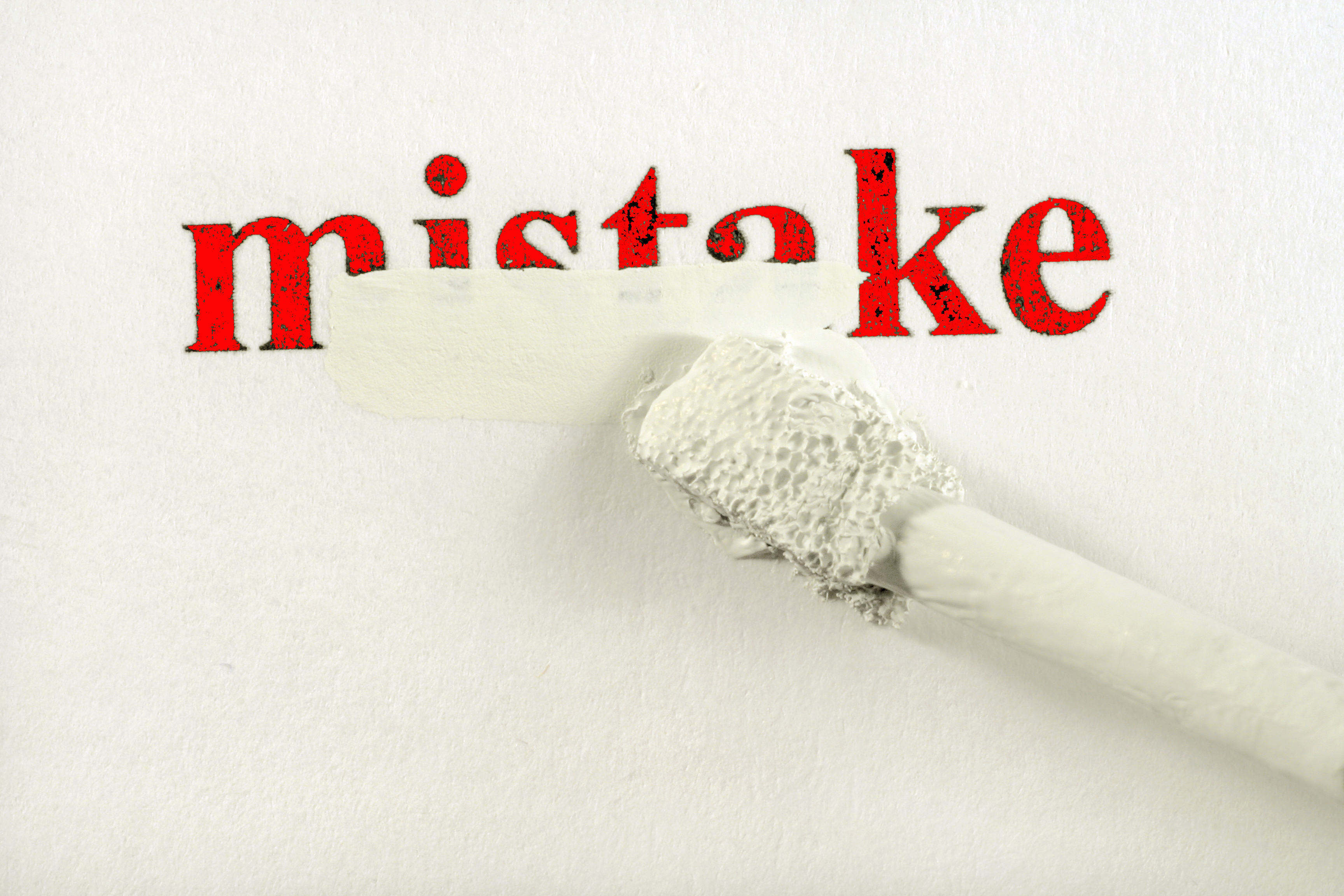Can a media correction ever really match the mistake?
There has to be a better way


A free daily email with the biggest news stories of the day – and the best features from TheWeek.com
You are now subscribed
Your newsletter sign-up was successful
On Jan. 26, Shawn Usman, a 31-year-old employee of the National Geospatial Intelligence Agency, lost control of his drone in downtown Washington, D.C. It crashed on the White House lawn, prompting a security alert and front-page headlines around the world.
Last week, prosecutors closed the case, declining to file charges against Usman.
A family member told me that Usman remains an employee in good standing at the NGA and did not face any disciplinary action. The person said that Usman has no problems with prosecutors, nor with the Secret Service, both of whom, he said, treated him with respect as they questioned him about the drone.
The Week
Escape your echo chamber. Get the facts behind the news, plus analysis from multiple perspectives.

Sign up for The Week's Free Newsletters
From our morning news briefing to a weekly Good News Newsletter, get the best of The Week delivered directly to your inbox.
From our morning news briefing to a weekly Good News Newsletter, get the best of The Week delivered directly to your inbox.
The media coverage, though, irks him. An early headline from The New York Times, for example, said the incident was "Described as a U.S. Worker's Drunken Lark." All accurate, except for the adjective. He was not drunk. Usman had two glasses of wine with dinner, about five hours before he decided to play with his drone. By the time he opened the window of his apartment, his blood alcohol level was probably .00, or thereabouts. Usman had volunteered to the Secret Service that his dinner included alcohol.
When that detail was given to news organizations, perhaps by the agency, perhaps by prosecutors, his confession turned into a bright red sticker that will remain next to his name for the rest of his life.
Initially, because Usman worked for an intelligence agency, the news media was reluctant to print his name — they didn't know what his status was. But once it leaked, everyone went with it.
Even today, the first several articles that Google returns about Usman describe him as "drunken" or "inebriated."
A free daily email with the biggest news stories of the day – and the best features from TheWeek.com
Usman will get off relatively easily.
After I wrote a piece apologizing to two Secret Service agents whose names I had printed alongside unverified accusations that they had been drunk, I spent the weekend explaining to friends and associates here in Los Angeles, people who had heard about the incident on the news, why I was in the news for making the mistake.
"Weren't they drunk?" one friend asked me via text.
"No! There is no evidence that they were drunk. NONE." I responded.
Another friend said he didn't understand why I had to apologize. "They were drunk!" he wrote me in a text.
Initial news reports, particularly those that fit into a story you're apt to believe, persevere. Even if you're told, directly, that an important detail isn't true, it will take a lot of convincing before you will assimilate that information.
Now, news organizations are going to make mistakes in the aggressive pursuit of stories, and some of those mistakes will come at the expense of people's reputation. This is an inevitable consequence of the way news works, and I would rather the media make mistakes and be forceful than be error-free and timid.
Since we can't go door-to-door and personally articulate to every reader how we got something wrong, the media appends corrections to the text of stories, often at the bottom, occasionally at the top. But the headlines and impression spread way too quickly for us to keep up. There's no way to physically correct each one. That's why we shouldn't be satisfied with the correction. We have to figure out another way to make good for our mistakes. Apology stories, like the one I wrote, are self-indulgent and would clutter the news hole, too.
So here are some suggestions:
Since search engines rule the way we organize the world, perhaps each of the three major search engines — Google, Yahoo, Bing — should dedicate a team of technicians to tinker with their algorithms so that corrected stories get higher play than initial headlines and links that would understandably get a lot more attention and clicks. It would not be impossible for the stories about Shawn Usman to be reordered based on their degree of post-facto accuracy. The SEO wizards curate news feeds all the time. Corrective action is simply an extension of curation.
We should stop, as a policy, using the "investigators are telling us" hedge as a way of defending inaccurate stories. We should still continue to use that formulation, and we will still make mistakes, but it's our responsibility to put what investigators tell us into a story. Since the news media is not a passive transmitter of press releases, we bear responsibility for the consequences of relying on what others tell us. Our libel lawyers may think differently, but ethically, we should drop that hedge from our defenses. We should not apologize using wiggle words. When we make mistakes, we should apologize.
A friend suggested that public officials buy some sort of reputation insurance that they can use to pay for a reputation management service to help then out, but I don't think that would apply to private citizens who have no way of knowing they're going to be in the news. I also think that public or quasi-public officials, particularly those, like Secret Service agents, with significant law enforcement power, must live with the reputational risk and rewards that come from their chosen profession.
Marc Ambinder is TheWeek.com's editor-at-large. He is the author, with D.B. Grady, of The Command and Deep State: Inside the Government Secrecy Industry. Marc is also a contributing editor for The Atlantic and GQ. Formerly, he served as White House correspondent for National Journal, chief political consultant for CBS News, and politics editor at The Atlantic. Marc is a 2001 graduate of Harvard. He is married to Michael Park, a corporate strategy consultant, and lives in Los Angeles.
-
 Why are election experts taking Trump’s midterm threats seriously?
Why are election experts taking Trump’s midterm threats seriously?IN THE SPOTLIGHT As the president muses about polling place deployments and a centralized electoral system aimed at one-party control, lawmakers are taking this administration at its word
-
 ‘Restaurateurs have become millionaires’
‘Restaurateurs have become millionaires’Instant Opinion Opinion, comment and editorials of the day
-
 Earth is rapidly approaching a ‘hothouse’ trajectory of warming
Earth is rapidly approaching a ‘hothouse’ trajectory of warmingThe explainer It may become impossible to fix
-
 Rural America is more diverse than you think
Rural America is more diverse than you thinkThe Explainer It's not as poor and white as the media makes it out to be
-
 Did the media get Ferguson wrong?
Did the media get Ferguson wrong?feature What we thought we knew about Ferguson is very likely not what actually happened
-
 Stop making fun of CNN's all-plane-mystery, all-the-time coverage
Stop making fun of CNN's all-plane-mystery, all-the-time coveragefeature The network's critics are sourpusses
-
 Media bias and the abortionist
Media bias and the abortionistfeature
